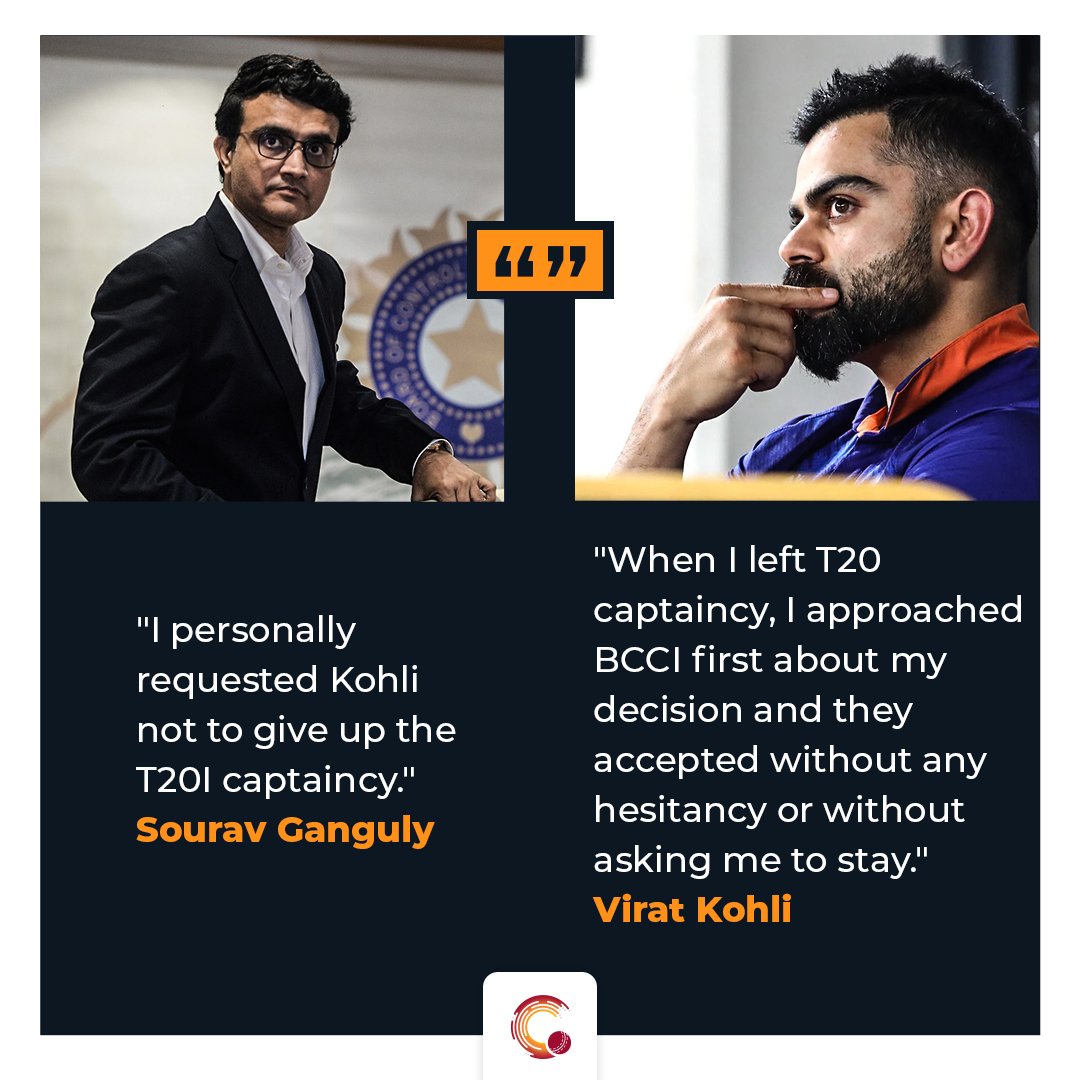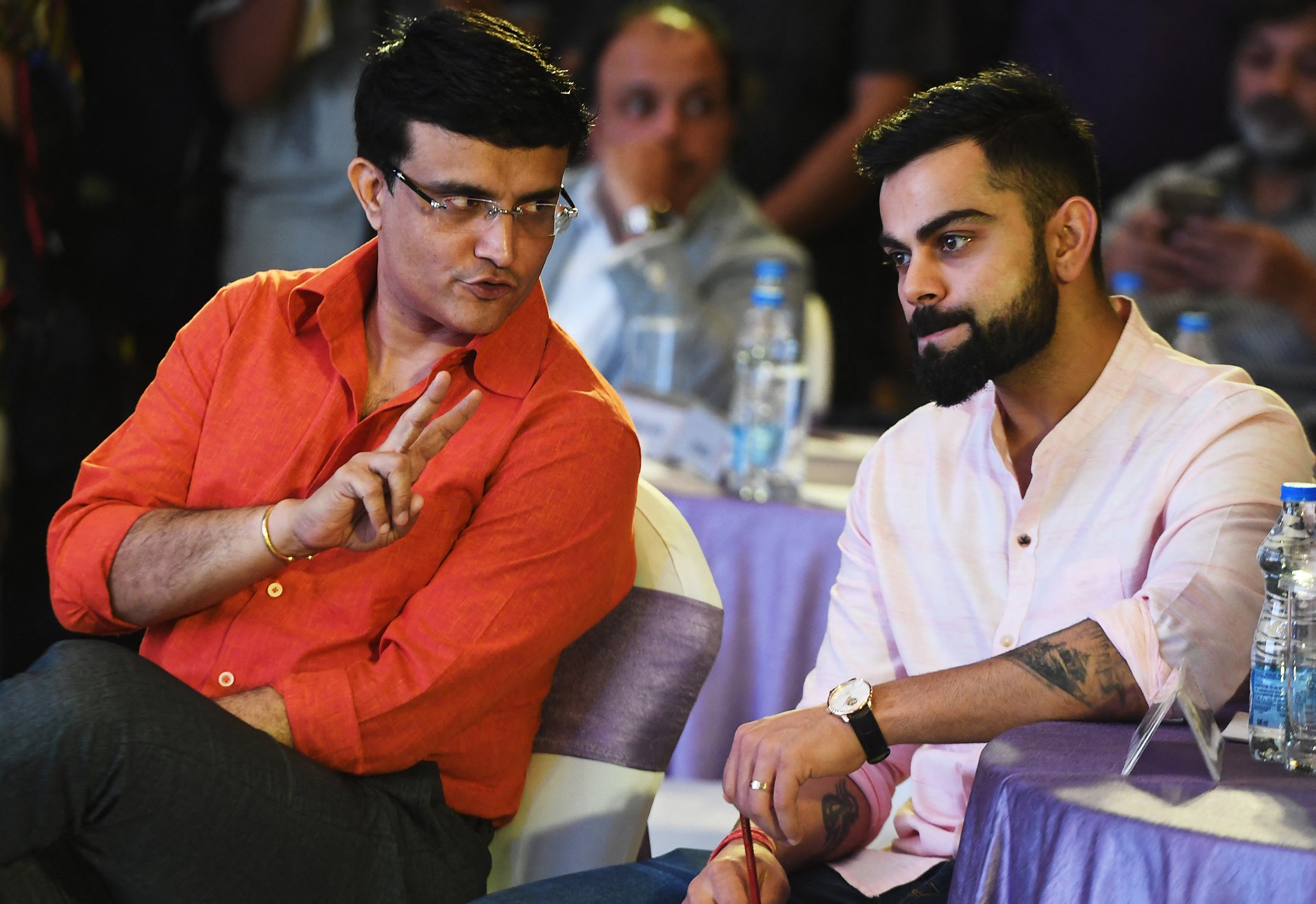News
Unintentionally or otherwise, Kohli exposed the massive failing in BCCI’s communication mechanism
 OPINION
OPINIONAll it needed was for the BCCI to subjugate their egos, pick up the phone and inform Kohli of both the decision and the reasoning behind throwing their weight behind Rohit
A tumultuous week in Indian cricket peaked to a crescendo on Wednesday (December 15) during Virat Kohli’s pre–South African tour press conference. It was inevitable that much of it would revolve around the import and manner of his ouster as ODI skipper, the imminent outing to the land of the Protea no more than a subtext.
Kohli was calm, dignified and composed in the face of extreme provocation during the quarter-hour interaction that, unsurprisingly, repeatedly harped on the ODI scheme of things. When, for instance, and how was he informed of his being replaced as the 50-over captain by Rohit Sharma? Did Sourav Ganguly, the BCCI president, urge him not to give up the T20I captaincy as far back as in September? Did the former India skipper and Chetan Sharma, the chairman of the selection committee, speak to him about the reasoning behind bringing Rohit, the then designated T20I skipper, on board as the ODI captain too? And, going by a report in one of India’s leading national newspapers, was Kohli going to sit out the three-match 50-over series in South Africa to ‘spend time with his family?’
Only the extremely naïve or uninformed would have believed that Kohli would have been caught unawares by this line of questioning. After all, the 33-year-old is a month shy of slipping into his eighth year as Test captain and was at the helm of white-ball affairs since January 2017 before stepping down as T20I boss at the end of the T20 World Cup in the UAE last month. He isn’t immune to the immense interest in the behind-the-scenes interludes in Indian cricket, many of which are either figments of the imagination or steeped in mystery and intrigue, with reality a veritable casualty in a world of innuendo, half-truths and convenient non-truths.

Kohli was as honest as he could be without ruffling feathers. He clarified that when he informed the Board of Control for Cricket in India of his decision to step down as T20I captain, it was received well and without opposition. Effectively, he called Ganguly’s bluff. After all, in the immediacy of Rohit’s elevation as Kohli’s 50-over successor, the former Indian skipper had gone out of his way to point out that the BCCI had requested Kohli not to abdicate the 20-over throne, only for their request to be disregarded.
Not content with that revelation, Ganguly was emboldened enough to add that both he and Chetan had contacted Kohli to explain the rationale behind his replacement as ODI skipper. To have two white-ball captains would be ‘too much of leadership,’ Ganguly had proclaimed. That made sense, because white-balls teams need to have a common ‘culture’ – the much abused word in Indian cricket – even if the 50-over and T20 formats are as different as chalk and cheese. What doesn’t is the web of intrigue the BCCI seems to have trapped itself in, and which it hasn’t even attempted to extricate itself from, more than 20 hours since the dramatic yet measured Kohli press conference.
Also read: "Was told hour-and-a-half before Test squad announcement" - Kohli on captaincy snub
That Kohli is one of India’s most successful limited-overs skippers is without question. He has a success percentage of 65 in T20Is and 70-plus in 95 ODIs. Those are remarkable numbers in a cricketing landscape populated by three distinct landscapes that India, by virtue of their salability, are expected to traverse often and successfully. That said, Kohli has fallen short of steering the side to the Promised Land – a coveted global title. Once he publicised his decision to give up the T20I captaincy, he ought to have known that he would be stripped of the 50-over leadership role too, given the need for stability across white-ball formats, especially considering that World Cups in both versions lay in store in the next two years.
Few have found it worthwhile to argue the merit of having a single white-ball captain. The bigger question in the last several days is whether the ouster of Kohli the 50-over captain should have been handled with greater sensitivity, respect and decency. The answer is an emphatic ‘yes’.

Indian cricket has a long history of treating its superstars, especially long serving and successful leaders, with scarcely concealed disdain. Himself at the receiving end of an unkind cut when he was unceremoniously dumped as captain in 2005, one would have expected Ganguly to be more understanding, if not empathetic, when it came to overseeing a change in leadership credentials. That the former skipper chose to grandstand and talk to the hand rather than embrace the unalloyed truth must be particularly disappointing to those who insisted that the presence at the helm of administration in Indian cricket of a respected former cricketer would rectify the anomalies that have dogged the system for so long.
Also read: I was always available for ODI series: Kohli
Ganguly, and by extension the BCCI, have missed a glorious opportunity to lay out the roadmap for future succession pathways. All it needed was for them to subjugate their egos, pick up the phone and inform Kohli of both the decision and the reasoning behind throwing their weight behind Rohit for both versions of the white-ball game. As passionately integrated to the cause of Indian cricket as he is, Kohli is smart enough not to have understood the rationale behind that move, especially given that since the 2013 Champions Trophy, India have mounted numerous unsuccessful campaigns to add to their trophy collection. He might not have been thrilled at the prospect of being deprived of his status as 50-over skipper, but he would at least have been accorded the privilege of a decent exit, which his long and successful stint most certainly deserved.
Unintentionally or otherwise, Kohli has exposed the massive failing in the BCCI’s communication mechanism. To those asking why he and not Ganguly should enjoy the benefit of the doubt in the credibility stakes, it is worth pointing out that by speaking his version of the truth, Kohli has hardly ingratiated himself to the powers that be. Ganguly’s long history of convenient half-truths seems to have come back to haunt him. This is as good a time as any to clean the Augean stables, because Indian cricket can ill afford to have multiple, discordant and divergent voices at a time when it is primed to dominate the sport.